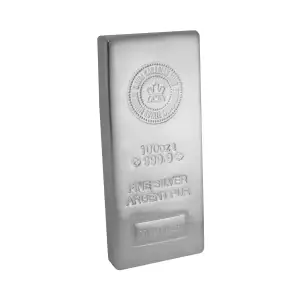Is Real Estate a Good Alternative to Gold? Understanding Their Differences in an Inflationary Market
Introduction: Comparing Gold and Real Estate as Stores of Value
As inflation erodes the purchasing power of cash, investors seek safe-haven assets to preserve and grow their wealth. Historically, gold has been a reliable store of value, while real estate has also been considered a hedge against inflation. However, these two assets behave very differently, and whether real estate is a true alternative to gold depends on the investor’s goals, risk tolerance, and liquidity needs.
1. The Key Differences Between Real Estate and Gold
A. Tangibility and Use Cases
Gold is a purely monetary asset, valued for its scarcity and historical role as a hedge against inflation and currency devaluation. Real Estate is both a financial asset and a functional asset, meaning it provides utility (housing, rental income, or commercial use) while also appreciating in value.
B. Liquidity: Gold is More Liquid
Gold can be sold instantly in global markets, making it one of the most liquid assets in the world. Real estate is illiquid—selling a property can take months, and transaction costs (agent fees, closing costs, taxes) are high.
C. Price Volatility
Gold fluctuates based on macroeconomic conditions, central bank policies, and investor sentiment. However, it does not experience crashes like 2008’s real estate collapse. Real estate prices are more regionally dependent and highly sensitive to interest rates. Rising mortgage rates can cause housing demand to decline, reducing price growth.
D. Maintenance & Holding Costs
Gold has minimal maintenance costs—it can sit in a vault for decades with no degradation. Real estate requires ongoing costs such as property taxes, insurance, maintenance, and potential repairs.
2. Why Real Estate Prices Have Risen Steadily
A. Inflation and Monetary Expansion
As central banks print money and expand credit, asset prices rise, including homes, stocks, and commodities. Cheap mortgages during low-interest-rate environments have made borrowing more affordable, pushing demand higher.
B. Limited Housing Supply
In many regions, housing supply has not kept up with demand, particularly in major urban centers. Zoning laws, high construction costs, and labor shortages restrict new housing developments.
C. Institutional Investors & Foreign Buyers
Hedge funds and private equity firms have started buying up residential real estate, reducing supply and increasing prices. Foreign investment in U.S. housing has also driven prices higher, particularly in major metro areas.
D. The "Hard Asset" Appeal
Many investors view real estate as a hedge against inflation, leading to increased demand for properties. Rental income provides a cash flow component that gold lacks.
3. The Risks of Real Estate as an Investment
A. Interest Rate Sensitivity
Higher mortgage rates reduce affordability, slowing demand and potentially causing housing price corrections. The Federal Reserve’s recent rate hikes have already started cooling off some overheated markets.
B. Regional Market Risks
Unlike gold, which is a global asset, real estate is highly localized. Some areas experience booms and busts, such as the 2008 housing crash or market declines in cities like San Francisco post-COVID.
C. Liquidity Issues in a Downturn
If the market freezes, selling a home or investment property may become difficult or require steep price reductions. During economic recessions, real estate can lose value quickly.
D. Government Intervention
Governments can impose property taxes, rent controls, or capital gains taxes that reduce real estate’s appeal as an investment. Regulations on foreign buyers or institutional investors could impact market dynamics.
4. Should Real Estate Be Considered an Alternative to Gold?
While both gold and real estate act as inflation hedges, they serve different investment purposes:
- ✅ Gold is a better hedge against currency devaluation and systemic financial crises. It is a highly liquid, portable, and purely monetary asset that functions as a store of value across centuries.
- ✅ Real estate is a better hedge against long-term inflation and generates rental income. It has cash flow potential, but it is illiquid and regionally dependent.
Best Use Cases
Gold is best for preserving purchasing power and financial security during market turbulence. Real estate is best for long-term capital appreciation and income generation but comes with higher risks.
5. Conclusion: Gold and Real Estate Are Complementary, Not Interchangeable
Rather than choosing one over the other, savvy investors diversify:
- Holding gold as a financial hedge against currency risk and inflation.
- Owning real estate as a long-term investment with income potential.
However, real estate is not a perfect alternative to gold because it carries regional market risks, interest rate sensitivity, and liquidity issues that gold does not. With housing prices at all-time highs, some real estate markets may be overheated, meaning gold could be a more stable hedge in the short term. Ultimately, both assets play unique roles in a diversified investment strategy.












